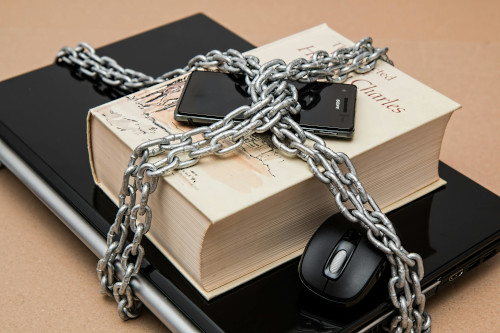
In the old days, when the cock still crowed without checking the price of eggs in the market, elders used to say, “It is not every man who smiles that wishes you well.” Today, that old wisdom has jumped out of the village square and found a new home, in your email inbox, where email phishing lurks behind friendly faces and urgent requests.
Understanding email phishing is important because millions receive emails every day pretending to come from trusted sources: your bank, your boss, or even a prince from a faraway land offering riches for doing nothing. These emails have one goal: to trick you into handing over your secrets, passwords, money, or peace of mind.
This is email phishing, a trick where someone pretends to be someone else to fool you into giving sensitive information. Let us take a walk through this digital forest together.

A Real-Life Phishing Scandal from the Global Village
Once upon a recent time, in a land where elections were won with tweets and tantrums, a political party received an email that looked like it came from Google. The message told a staff member to “verify your password immediately to prevent account closure.”
The eager staffer clicked the link and entered their password.
Boom. Their email was compromised.
This opened gates to confidential emails, internal strategies, and spicy conversations not meant for public eyes. The scandal became world-famous as the Democratic National Committee email leak of 2016, reminding the world that while the pen is mightier than the sword, the password is mightier than both.

How to Recognize a Phishing Email in Your Inbox
Phishing emails are wolves in agbada, well-dressed, respectable, but ready to eat your goats. Here’s how to spot them:
- Too good to be true: “Congratulations! You’ve won a million dollars from the United Nations Disaster Relief Fund.” Even your auntie selling tomatoes doesn’t give money without questions.
- Urgency and threats: “Your account will be suspended unless you act now!” Real organizations don’t rush you like a fake prophet with unpaid rent.
- Suspicious links: The email says it’s from your bank, but hovering shows a strange address like
bank-of-suffering.ru. - Spelling mistakes: Phishing emails often look rushed, like someone who failed English but passed Mischief.

A Famous Email Phishing Attack That Shocked the World
In 2020, while the world was busy washing hands, hackers were washing wallets. The famous Twitter hack compromised accounts of Barack Obama, Elon Musk, and Joe Biden.
Hackers posted tweets asking followers to send Bitcoin, and many did.
This was phone phishing (called vishing), where some Twitter employees were tricked into giving credentials. Access was gained, chaos reigned.
The very platform where world leaders argue about trade wars and climate change became a playground for digital pickpockets.

Protecting Yourself from Email Scams: Simple Steps
The tortoise may be slow, but it never forgets its shell. You can protect yourself by understanding email phishing:
- Don’t trust too quickly. Unexpected messages asking for info? Pause and investigate.
- Check the sender’s email carefully. If your bank emails you from
support@bankfreeprizes.biz, run. - Don’t click strange links. Hover over them to see where they lead. Or go straight to the official website.
- Use strong, unique passwords for each account. If one falls, don’t let hackers enter all your digital houses.
- Enable two-factor authentication—two locks are better than one.
- Teach your elders and young ones. Phishing preys on trust and unfamiliarity.
If your organization needs help training staff or setting up stronger email security systems, our digital safety services are here to support you.

Wisdom from the Village: Don’t Let Phishing Catch You Sleeping
They say the strongest trees fall not because they are weak, but because they refuse to bend when the wind changes. In the world of fast screens and sly whispers, those who refuse to adapt are caught sleeping first.
The internet isn’t your enemy, but like a bush path at night, it rewards the careful and punishes the careless. Understand what email phishing really means.
Don’t fear every email, but don’t greet each one like a trusted uncle returning from abroad. Even Judas smiled at the table.
And if a mysterious sheikh offers you untold riches, remember: if the hyena offers meat, count the goats.
Stay wise. Stay alert. And like the tortoise, never forget your shell.